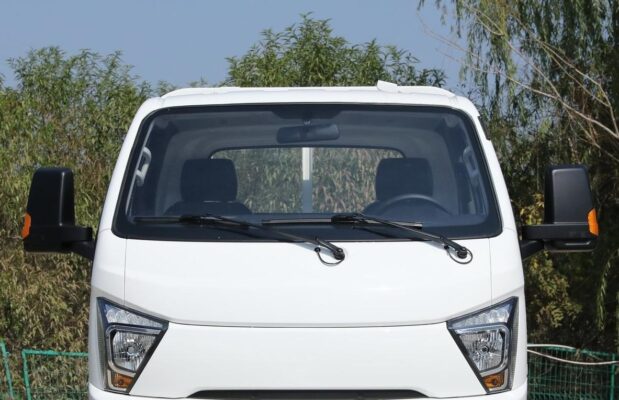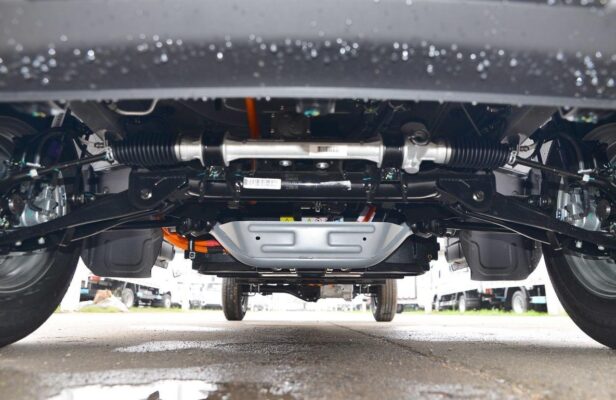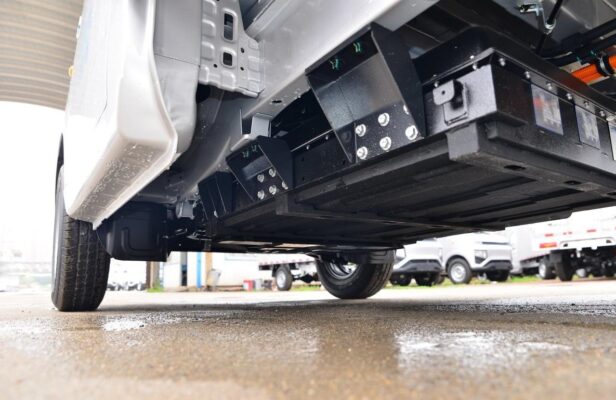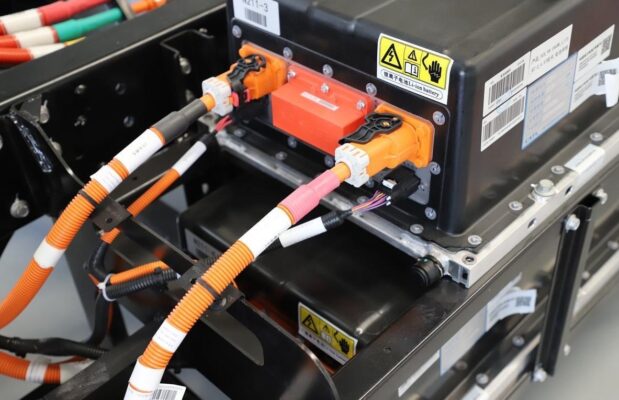Hluav Taws Xob Truck Paub
Classification of Special Purpose Vehicles
Muab lo rau los ntawm Hluav Taws Xob Truck
Currently, there is a lack of a uniform global standard for the term “special purpose vehicle,” and different countries have diverse interpretations and categorizations of it.
In the automotive literature of the United States and the United Kingdom, it is referred to as “Special Type of Vehicle.” This encompasses a wide range of vehicles such as passenger cars, flatbed trucks, diesel trucks, municipal delivery trucks, tricycles, large-wheel trucks, ambulances, and hearses. It is also labeled as “Special Type of Vehicle” when mainly referring to fire engines, ambulances, airport vehicles, and bank vehicles, among others.

In the JIS (Japanese Industrial Standard) D0101-1967 (approved in 1973) automotive terminology in Japan, vehicles equipped with special equipment and powered by the vehicle’s own engine or a dedicated one are termed special equipment vehicles (specially equipped vehicles). This category includes dump trucks, liquid tank trucks, fire engines, concrete mixer trucks, and garbage trucks. Vehicles with special bodies installed on ordinary car chassis are called special purpose vehicles (special vehicles), such as ambulances, publicity vehicles, and postal vehicles. Those specially manufactured with unique structures for specific operations are designated as special vehicles (special vehicles), like crawler vehicles, agricultural working vehicles, and overweight vehicles.
In the Road Vehicle Transportation Law of the Ministry of Transport of Japan, vehicles are categorized into three main groups: Freight vehicle transporters, which incorporate long-nose trucks, flatbed trucks, dump trucks, van trucks, tricycle trucks, full trailers, semi-trailers, and so forth; Special purpose vehicles, including fire engines, police cars, ambulances, medical and epidemic prevention vehicles, freezer trucks, refrigerated trucks, publicity vehicles, liquid tank trucks, sprinkler trucks, engineering vehicles, postal vehicles, concrete mixer trucks, garbage trucks, and the like; Large special vehicles, such as bulldozers, scrapers, loaders, forklifts, asphalt trucks, long cargo transporters, agricultural tractors, etc.
In essence, the so-called special purpose vehicles or special vehicles (Special Vehicle) abroad are a type of vehicle that differs from basic vehicles in multiple characteristics. They can be vehicles that are specially modified for transporting goods and/or personnel or those used exclusively for completing specific tasks.

In China, the corresponding standard for the term “special purpose vehicle” was established in 1989 – ZBT50004-89 Terms and Definitions of Special Purpose Vehicles.
The ZBT50004-89 standard defines domestic special purpose vehicles as: “Vehicles and vehicle trains equipped with special equipment, possessing special functions, and utilized for undertaking special transportation tasks or special operations.”
This standard further classifies domestic special purpose vehicles into six main categories.
Van vehicles are special purpose vehicles and vehicle trains with an independent closed structure compartment or an integrated closed structure compartment with the cab. They are equipped with special facilities and are employed for carrying personnel, goods, or undertaking specific operations. Consider a delivery van, which is designed with compartments to ensure the safe and protected transportation of various goods.
Tank vehicles are special purpose vehicles and vehicle trains outfitted with tank-shaped containers and typically come with working pumps. They are used for transporting liquids, gases, or powdered substances and for completing specific operational tasks. piv txwv li, fuel tankers that transport gasoline or chemical tankers that carry hazardous substances.
Special dump trucks are special purpose vehicles equipped with a hydraulic lifting mechanism driven by their own engine. These can unload the carriage or tilt it at a certain angle, allowing the goods to be discharged by their own weight. Construction sites often use these to efficiently handle and dispose of construction materials.

Overweight lift vehicles have carriage structures like bin cage type and fence type and are used for transporting bulk granular food, livestock, poultry, and other goods. They are essential in the agricultural and food transportation sectors.
Special structure vehicles are special purpose vehicles and vehicle trains featuring various special structures such as truss structure and flat plate structure. Examples include cranes with specialized truss arms or flatbed trailers for carrying oversized equipment.
Each of these categories of special purpose vehicles comprises numerous variants with distinct functions and structures, tailored to meet specific operational needs and industry requirements.
piv txwv li, within the van vehicle category, there are insulated vans for transporting perishable goods, refrigerated vans for transporting temperature-sensitive items, and vans with specialized compartments for carrying delicate equipment.
Tank vehicles can further be classified based on the type of substance they transport. Some are designed for highly corrosive chemicals, while others are for flammable liquids, each with specific safety features and construction materials.
Special dump trucks may vary in their lifting capacity and the angle of tilt, depending on the nature of the materials they are intended to handle.
Overweight lift vehicles can have different cage and fence designs to accommodate various types and sizes of bulk goods.
Special structure vehicles can range from mobile stages for events to custom-built platforms for specialized industrial applications.
The development and classification of special purpose vehicles are constantly evolving to meet the diverse and changing needs of different industries and sectors. As technology advances and new operational requirements emerge, these vehicles are becoming more sophisticated and specialized.

In the field of emergency services, piv txwv, special purpose vehicles are now equipped with advanced communication systems, life support equipment, and specialized tools to handle complex rescue operations.
In the logistics and transportation industry, there is a growing demand for special purpose vehicles with enhanced fuel efficiency, larger payload capacities, and improved tracking and monitoring systems.
Moreover, with increasing environmental concerns, there is a push towards developing special purpose vehicles with electric or hybrid powertrains to reduce emissions.
Xaus, the classification of special purpose vehicles is a complex and dynamic field that reflects the diverse needs and technological advancements of modern society. Understanding these classifications is crucial for manufacturers, operators, and regulators to ensure the efficient and safe use of these vehicles in various applications. Continual research and innovation in this area will undoubtedly lead to the development of even more specialized and efficient special purpose vehicles in the future, contributing to the progress and development of different industries and the overall economy.